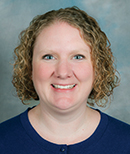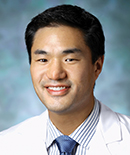Warren Bennis, the management consultant who pioneered the field of leadership, once said that the idea of the natural-born leader was a “dangerous myth” and that the opposite was true: “Leaders are made rather than born.”
That leadership can be taught and nurtured is a guiding principle of the ATS Emerging Leaders Program that kicked off on Friday with its first “class” of 18 ATS members. The participants for the year-long program were selected from a larger pool of candidates nominated by current leaders of ATS assemblies and committees.
James Stoller, MD, MS, chairman of the Cleveland Clinic Education Institute, is directing the ATS program, which is based on the Cleveland Clinic’s highly regarded leadership program.

Erin Kross, MD
The program, which will consist of five full-day sessions, three of which are virtual meetings, will emphasize participatory and experiential learning. During the sessions, the emerging leaders will discuss topics such as emotional intelligence, conflict resolution, team building, situational leadership, and executive presentation skills.
Erin Kross, MD, an assistant professor of medicine at the University of Washington, who is participating in the program, says she believes it represents an opportunity to “engage in formal training in leadership skills that to some degree we’re already practicing but were most likely never taught in a medical curriculum.”

Jonathan Jun, MD
Jonathan Jun, MD, an assistant professor of medicine at Johns Hopkins University, is particularly interested in the feedback he’ll receive in emotional intelligence. Before their first session, participants asked mentors, peers, and people reporting to them to complete an anonymous questionnaire designed to assess the participant’s ability to discern feelings and adapt to change, among other measures of emotional intelligence.
“I hope this feedback will help me build on my strengths and work on any weaknesses,” he says.
Drs. Kross and Jun are active ATS members and are looking forward to meeting other members active in the Society while preparing for future ATS leadership responsibilities.
At each training session, members of the ATS Executive Committee will share experiences from their careers, and all emerging leaders will be paired with a mentor from their home institution.
ATS President David Gozal, MD, MBA, says he believes that the program will help identify and develop leaders who can advance both the ATS mission and, of course, the mission of their home institutions.
“Ultimately, our aim is to help patients by enabling the leaders who will advance pulmonary, critical care, and sleep science and health,” he says.
